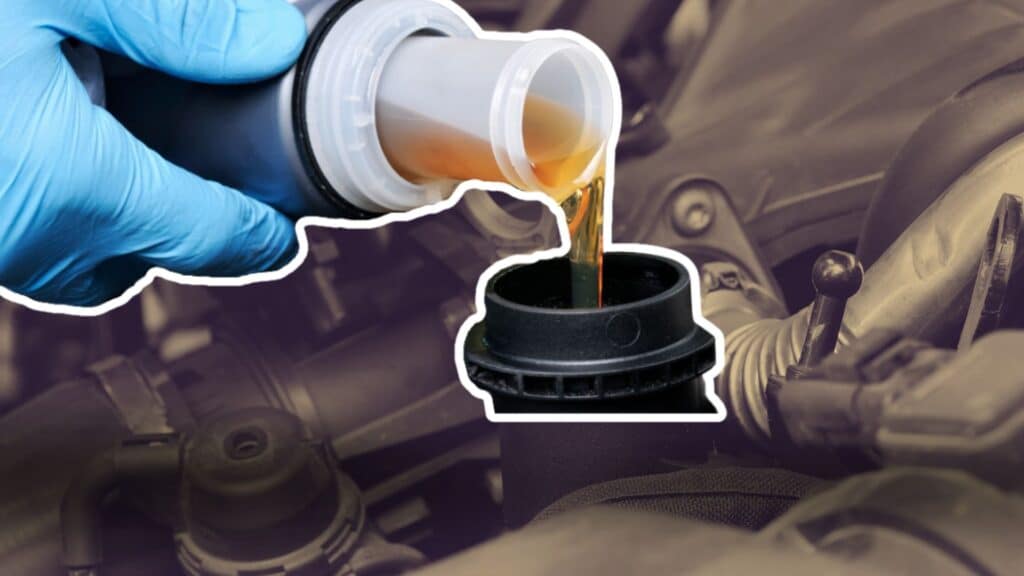Many car owners find it tricky to know when to change their oil. What should you rely on to determine when to change your oil?
This common question can cause uncertainty and, if not handled properly, might lead to engine issues.
This guide will help you understand the main factors affecting how often you need to change your oil.
We’ll look at what car makers suggest, how you drive, and the kinds of oil available to give you a clear idea of when your car needs fresh oil.
After reading this, you’ll know how to make smart choices about your car’s oil changes. We’ll discuss what dashboard lights mean and how driving affects the life of your oil. Let’s learn about oil change timing together.
Understanding the Critical Role of Engine Oil

Before we discuss when to change your oil, it’s key to understand why engine oil matters so much.
This part will explain the main jobs oil does in your engine, showing why taking care of your oil is important for your car’s health.
- Lubrication of engine parts: Oil coats the moving parts in your engine, helping them move smoothly against each other.
- Reduction of friction and heat: The oil helps parts slide easily, reducing friction. This means less heat builds up in your engine.
- Prevent wear and tear: Oil helps your engine last longer by reducing friction between parts. It stops parts from grinding against each other and wearing down quickly.
- Improve engine performance: Clean, fresh oil helps your engine work better and can reduce fuel use.
Knowing these jobs of engine oil shows why changing it at the right time is so important. Fresh oil does these jobs much better than old, dirty oil.
Benefits of Regular Oil Changes

Changing your oil at the right time has many good points. Here, we’ll discuss how regular oil changes can help your car run better, last longer, and save money.
- Improved engine performance: Fresh oil helps your engine run smoothly. It can make your car feel more powerful and responsive when you drive.
- Extended engine life: Regular oil changes keep engine parts from wearing out too fast. This can help your engine work well for many years.
- Enhanced fuel efficiency: Clean oil lets your engine work with less effort. This means you might need to buy gas less often, saving you money.
- Reduced risk of engine failure: Old, dirty oil can cause big problems that might stop your engine from working. Changing oil often helps avoid these issues.
- Maintenance of warranty coverage: Many car makers require regular oil changes to keep your warranty valid. Skipping oil changes might mean you have to pay for repairs that would have been covered.
These benefits show why it’s smart to keep up with oil changes. They help your car run better now and last longer in the future.
Types of Engine Oil
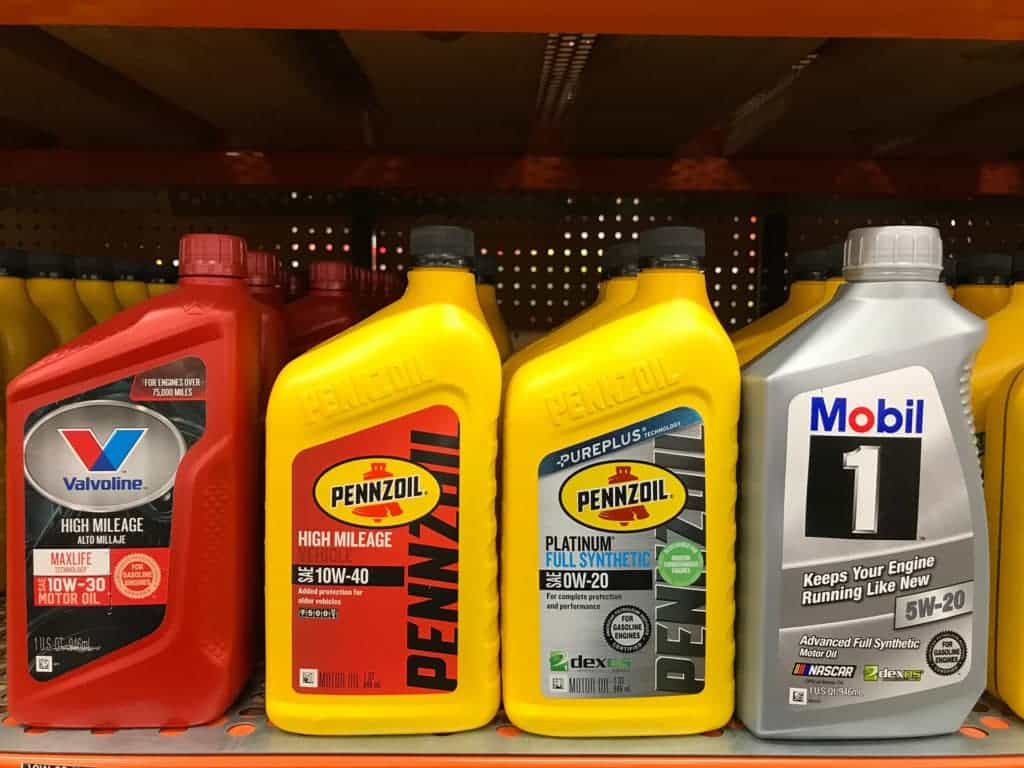
Not all engine oils are the same. This section examines the different kinds of oil you can buy, explaining what makes each special and helping you understand which might work best for your car.
1. Conventional Oil
- Good for cars that don’t have many miles on them
- It gives basic protection to engine parts
- Often, the least costly option
2. Synthetic Blend Oil
- Mixes regular oil with artificial oil
- Works better than conventional oil alone
- It gives more protection to your engine
- It costs more than traditional but less than full synthetic
3. Full Synthetic Oil
- It gives the best protection to your engine
- Great for new cars and those that need top-performance
- It lasts longer between changes
- It costs more than other types
4. High-Mileage Oil
- Made for cars that have gone over 75,000 miles
- It has special ingredients to help older engines
- It helps stop oil from leaking in older cars
- It can help reduce how much oil your vehicle uses
Knowing these types can help you pick the right oil for your vehicle. The best choice often depends on your car’s age, how you drive, and what the car maker suggests.
Manufacturer’s Recommendations
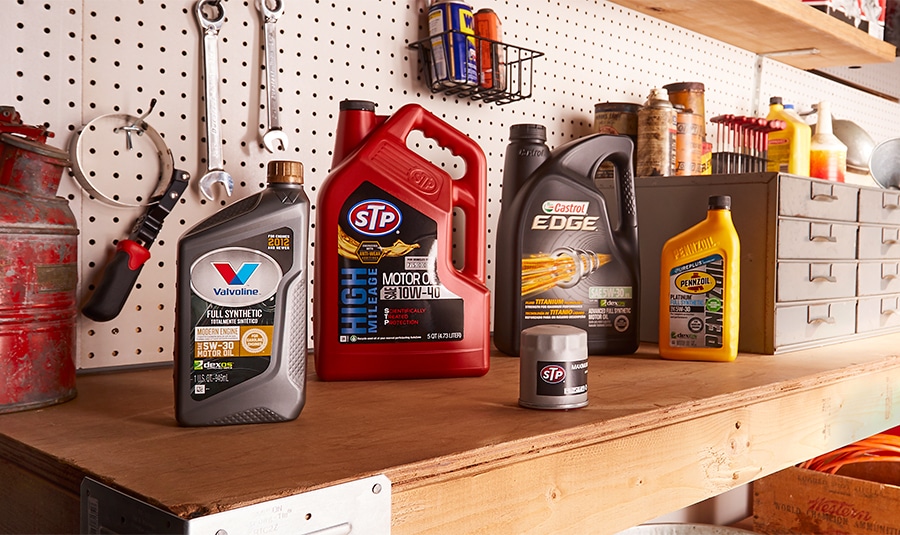
When thinking about what to rely on to determine when to change your oil, your car’s maker is a big source of help. We’ll explore why their advice matters and how to find it for your vehicle.
1. Importance of following the owner’s manual
The car maker’s advice is key when deciding what to rely on to determine when to change your oil.
Your car’s manual is a trusted source of information containing specific advice for your exact car model. Following these guidelines can help keep your warranty valid.
2. Specific guidelines based on make, model, and engine type
Each car is unique and has its own needs. The manual details what kind of oil to use, how often to change it, and any special care your engine might need.
These recommendations are based on how the engine is built, what conditions the car is meant to handle, and how long it wants the engine to last.
3. Recommended oil types and change intervals
Car makers thoroughly test their engines to know what works best for each vehicle they produce.
Their suggestions take into account your car’s specific make, model, and engine type. You’re taking good care of your engine by sticking to what your car’s maker suggests.
This advice is a solid starting point for keeping your car running well and maintaining its performance over time.
Factors Affecting Oil Change Frequency
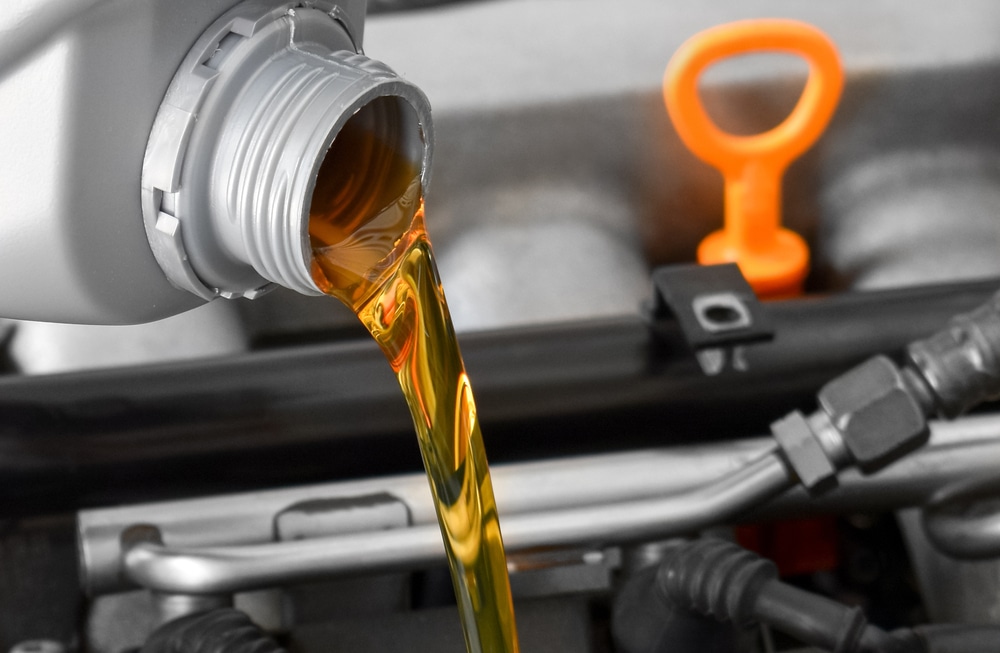
Many factors can affect how often you need to change your oil. This section will examine the factors that can affect how long your oil lasts, from how you drive to how old your car is.
1. Oil Type
The kind of oil you use affects how often you need to change it. Regular oil needs more frequent changes than lab-made oil, which can usually go longer between changes, which might save you time and money in the long run.
2. Driving Habits
How you drive your car matters. If you often drive in cities with lots of stops and starts, your oil might need changing more often.
The same goes for driving in hot or cold weather or dusty roads. These conditions can make oil break down faster.
3. Mileage
How much you drive is important, too. If you drive a lot daily, you’ll need to change your oil more often than someone who uses their car occasionally.
However, even cars that sit a lot need oil changes to keep the engine in good shape.
4. Vehicle Age
Older cars might need more frequent oil changes. As they age, engines might use oil faster or let more dirt into it. Changing oil more often can help older cars last longer.
5. Maintenance History
If you’ve always changed your oil on time, you might be able to go a bit longer between changes.
But if you’ve missed oil changes in the past, you might need to do them more often to help your engine catch up on the care it needs.
Understanding these factors can help you make smart choices about when to change your oil, keeping your car running smoothly for years.
Signs That Indicate It’s Time for an Oil Change
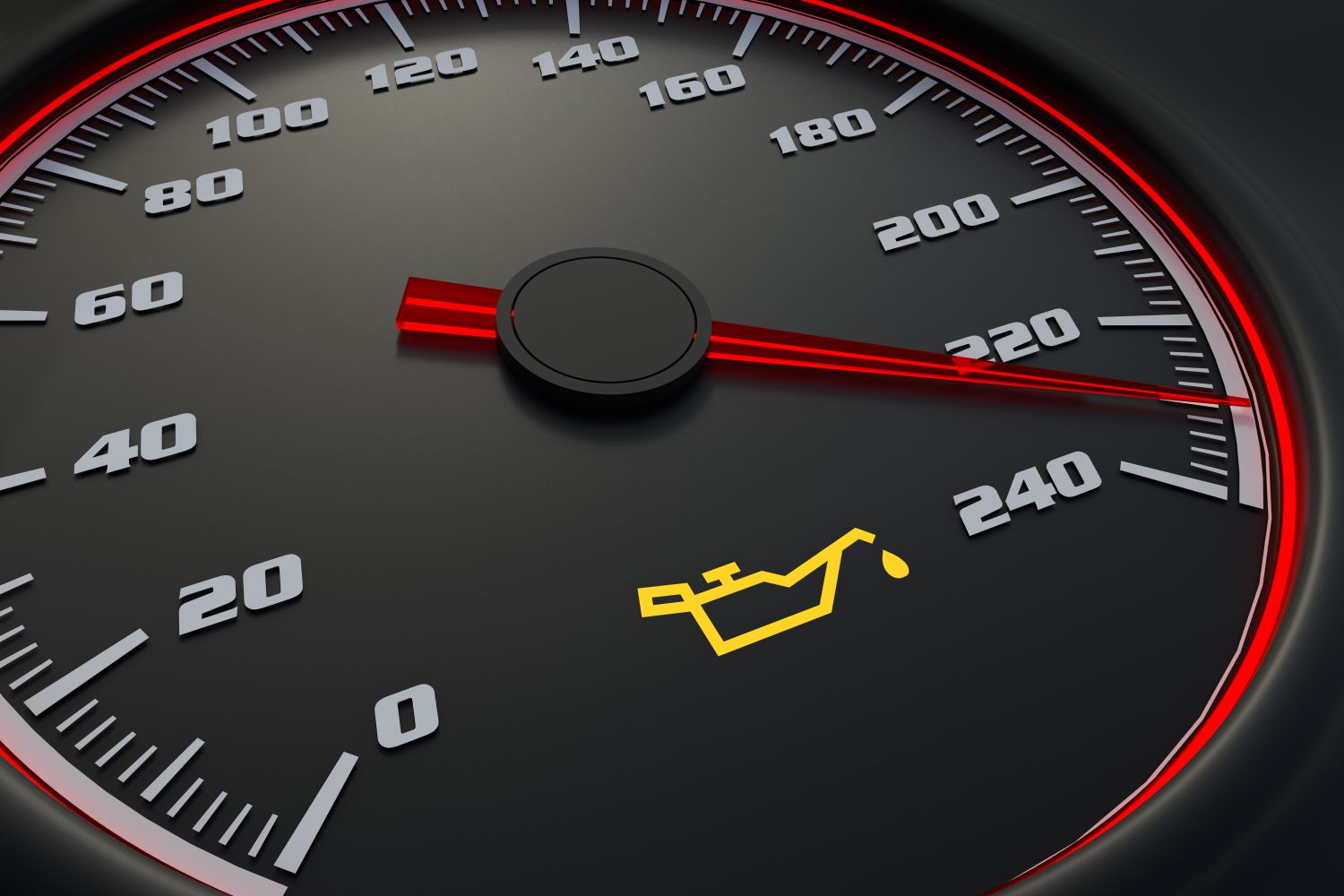
While knowing what to rely on to determine when to change your oil is important, your car might also give you hints that it’s time for fresh oil.
1. Dashboard warning lights
Many modern cars have lights on the dashboard that tell you when it’s time for an oil change.
These lights are connected to sensors that check how much you’ve driven and how your engine is working.
If you see an oil can symbol or a maintenance required light, it’s a good idea to check your oil soon.
2. Strange engine noises or performance issues
If your engine starts making odd noises, especially knocking, it might mean your oil is deteriorating.
You might also notice that your car doesn’t run as smoothly as it used to or uses more fuel than normal. These could be signs that your oil needs changing.
3. Dark and gritty oil on the dipstick
You can check your oil yourself using the dipstick. Pull it out, wipe it clean, then put it back in and pull it out again.
New oil is usually a light, clear color. It might be time for a change if your oil looks dark or feels gritty when you rub it between your fingers. Also, if the oil level on the dipstick is low, you should add oil or get it changed soon.
The Process of a Professional Oil Change
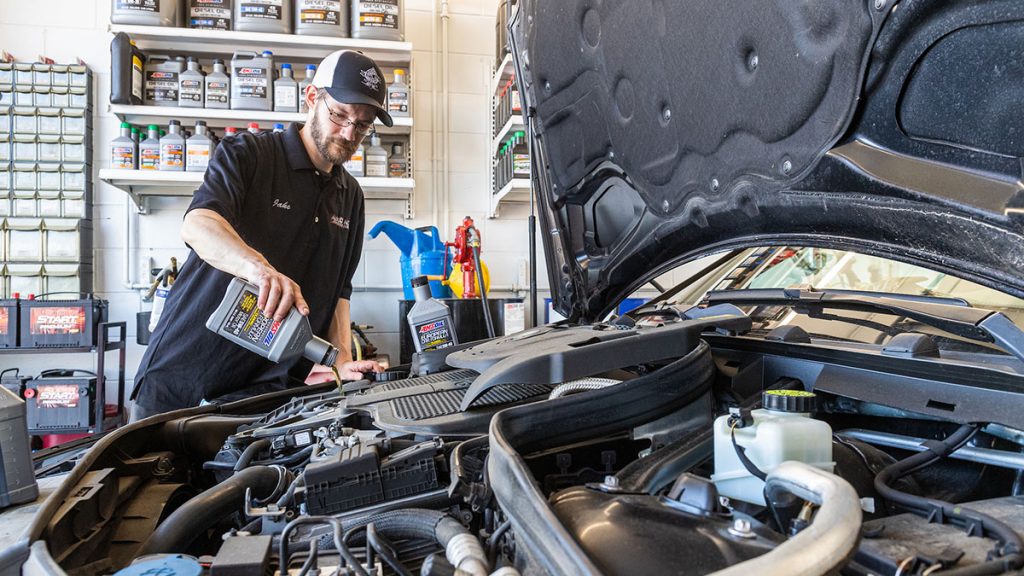
When you take your car for a professional oil change, several steps are involved to ensure your engine gets the care it needs. Here’s what typically happens.
1. Draining old oil and replacing the oil filter
The mechanic starts by removing the old oil from your engine. They do this by unscrewing a plug at the bottom of the oil pan and letting the old oil drain out.
Then, they replace the old oil filter with a new one. This filter helps keep dirt and tiny bits of metal out of your engine oil.
2. Adding fresh oil
After removing the old oil and installing the new filter, the mechanic adds fresh oil to your engine.
They use the type and amount of oil for your specific car model, ensuring your engine gets the protection it needs.
3. Lubrication of high-wear areas
Some mechanics will also put oil on parts of your car that wear out quickly, like door hinges or the hood latch. This extra step can help these parts last longer and work better.
4. Checking other fluid levels and vehicle components
A good oil change often includes checking other important parts of your car. The mechanic might look at your brake fluid, coolant, and other fluids to ensure they’re at the right levels.
They might also check your air filter, belts, and hoses for signs of wear. This process helps keep your car running smoothly and catch small problems before they become big.
It’s one of the best ways to maintain your car and keep it on the road for a long time.
Conclusion
Determining when to change your oil depends on several factors. Your car’s manual, driving habits, and the type of oil you use all play key roles.
Pay attention to your dashboard lights, engine sounds, and oil appearance for signs of a change.
Regular oil changes keep your engine running smoothly and can prevent costly repairs.
Remember, what you should rely on to determine when to change your oil can vary. While general guidelines exist, your specific situation matters most.
Trust your car maker’s advice and consider your unique driving conditions. You can make smart decisions about oil changes by staying informed and attentive.
If you’re ever unsure, don’t hesitate to ask a trusted mechanic. They can provide personalized advice to keep your car in top shape.
Frequently Asked Questions
1. What determines how often oil should be changed?
Several factors determine oil change frequency: your car’s make and model, the type of oil used, your driving habits, and environmental conditions.
Your car’s manual provides a baseline, but frequent short trips, extreme temperatures, or heavy loads may require more frequent changes.
2. What is the best guide to knowing when to change the oil?
The best guide for oil changes is your car’s owner’s manual. It provides specific recommendations based on your vehicle’s make, model, and engine type.
However, also consider your driving habits and conditions. For newer cars, onboard oil life monitoring systems can provide accurate change intervals.
3. What is the most accurate method of determining engine oil service interval?
If equipped, the most accurate method for determining oil change intervals is using your vehicle’s oil life monitoring system.
These systems consider driving conditions, engine temperature, and RPMs to calculate when an oil change is needed. For older cars, it is best to follow the manufacturer’s recommendations.
4. What should you rely on to determine when to change your oil?
To determine when to change your oil, rely on your car manufacturer’s recommendations, your vehicle’s oil life monitoring system (if available), and your observations.
Pay attention to dashboard warning lights, engine performance changes, and the oil’s appearance on the dipstick.

